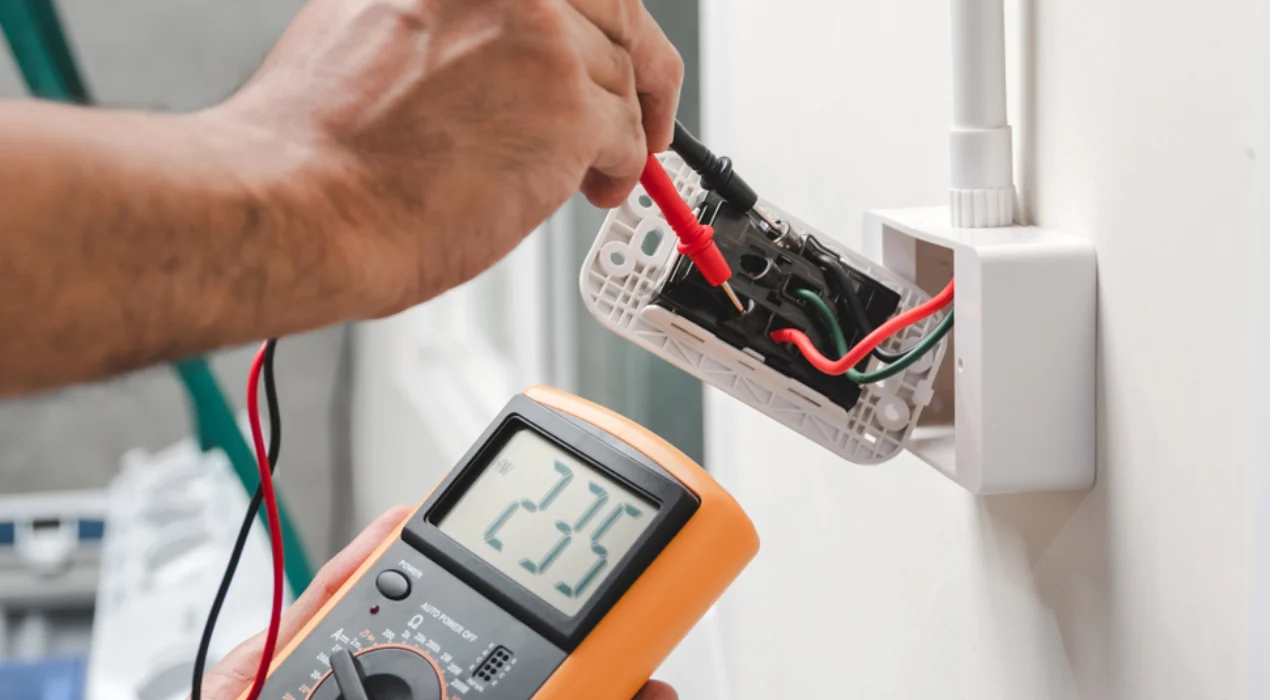Too Many Requests from Your Network
Please complete verification to access this content.
House wiring is almost always AC (Alternating Current) because it’s more efficient for delivering electricity over long distances and is compatible with most household appliances. If you need reliable electrician services in Lowestoft for any electrical work or questions, visit Buraq Electric.
Understanding AC vs. DC in House Wiring
In homes, the electrical wiring system primarily uses Alternating Current (AC), not Direct Current (DC). AC is better suited for residential wiring because it’s safer, more economical, and works seamlessly with the electrical grid. In the UK and other countries, the electricity delivered by utility companies is in AC form, which flows through home wiring to power lights, appliances, and devices efficiently.
Why is AC Used in House Wiring?
The main reasons AC is preferred for house wiring include:
- Efficient Transmission: AC electricity can travel long distances without losing as much energy as DC. This makes it ideal for carrying power from Lowestoft’s electrical grid to homes.
- Compatibility: Most household appliances, from lights to kitchen gadgets, are designed for AC.
- Safety: AC voltage cycles allow safer handling, as it’s less likely to cause continuous electrical flow in the case of an accidental shock.
If you’re looking to install, repair, or inspect the wiring in your home in Lowestoft, a qualified local electrician from Buraq Electric can ensure it’s safely and correctly wired.
The Basics of AC and DC
Alternating Current (AC): Flows in cycles and changes direction periodically, ideal for home wiring and compatible with the mains electricity in Lowestoft.
Direct Current (DC): Flows in one direction, mostly used in batteries and small electronics. Rarely found in home wiring, though it’s common in cars and certain specialized equipment.
Do Homes Use Any DC Power?
While most home wiring uses AC, certain devices like mobile phones, laptops, and LED lights use DC power. These devices typically have adapters (like phone chargers) that convert AC from your outlets to DC.
Some newer homes incorporate small amounts of DC wiring for solar panels or energy-efficient systems. If you’re considering a solar setup in Lowestoft, Buraq Electric can help ensure safe installation with both AC and DC compatibility.
FAQs
1. Why is AC better for house wiring?
AC allows efficient power transmission and is safer for home wiring as it’s compatible with standard UK power grids and home appliances.
2. Can homes be wired with DC instead of AC?
It’s technically possible, but not practical or cost-effective for most homes. AC wiring remains the standard for residential properties.
3. Are there any DC devices in homes?
Yes, some devices use DC power, such as LED lights and mobile devices. These usually come with adapters to convert AC to DC.
4. Is AC or DC safer for household use?
AC is considered safer for residential wiring due to its compatibility with mains electricity and the reduced risk of continuous electrical flow.
5. Who should I contact for electrical issues in Lowestoft?
If you’re in Lowestoft and need an expert electrician, contact Buraq Electric for reliable, safe, and affordable services.
Conclusion
For homes in Lowestoft and around the UK, AC is the standard choice for house wiring. Its efficiency, compatibility, and safety make it the best option for residential power systems. While some devices require DC, these are easily managed with converters. If you’re in Lowestoft and have questions or require professional assistance with your home wiring, contact Buraq Electric today to schedule an appointment with our qualified electricians.
With our expert team in Lowestoft, we’re here to ensure your home’s electrical systems are safe, compliant, and efficiently set up. Whether you’re installing new wiring, upgrading, or simply want an inspection, Buraq Electric is ready to help!
